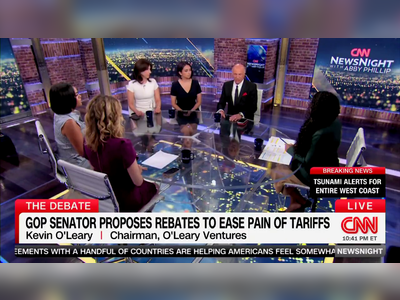Declining Beer Consumption Signals Cultural Shift in Germany
Young Germans are turning away from alcohol, leading to a significant drop in beer consumption and posing challenges for local breweries.
Germany, a nation renowned for its beer culture and traditions, is witnessing a continued decline in beer consumption, reflecting changing social attitudes, particularly among younger generations.
In 2024, beer sales in Germany dropped to 8.3 billion liters, a decrease of 119.4 million liters (1.4%) compared to 2023.
Over the past decade, overall beer consumption has seen a significant reduction of 15.1%, with beer exports declining by 6% during the same period.
Several factors have contributed to this trend.
The COVID-19 pandemic greatly impacted social interactions, shifting gatherings from pubs and beer gardens to virtual connections.
Coupled with rising inflation, fewer young people are consuming beer, as many are adopting healthier lifestyles and choosing non-alcoholic beverages over traditional alcohol.
Additionally, Germany's aging population faces health-related alcohol consumption restrictions, while the increasing presence of Muslim immigrants, who typically abstain from alcohol for religious reasons, further influences the decline.
Per capita beer consumption has fallen from an average of 111 liters to 88 liters annually by 2023.
The onset of 2025 does not bring optimistic forecasts for the nation's 1,459 breweries, a number that has increased by 100 in the past decade.
From January to May 2024, only 3.41 billion liters were sold, marking the lowest volume sold since the reunification of East and West Germany, representing a 7% decline year-on-year.
Notably, the pace of this decline has accelerated in recent years, with concerns raised over the future viability of breweries in light of shifting consumer sentiment and escalating production costs.
The German Brewers Association has issued warnings, indicating that continued drops in demand, particularly for locally brewed beer, could lead to the closure or merging of numerous smaller breweries with larger firms.
Non-alcoholic beer sales have provided a slight reprieve, comprising approximately 10% of total beer sales, but competition in this segment is fierce.
Current pricing also reflects historical averages, with cases of 20 half-liter bottles selling for between 10 and 11 euros, similar to prices before Germany's reunification.
Retailers, supermarkets, and distributors of beer to restaurants and businesses are absorbing the brunt of losses attributed to low pricing strategies.
Although short-term promotions boost sales figures, they also hinder long-term branding efforts, making it challenging to restore perceptions of beer as a quality or health-oriented product.
The advertising landscape has shifted significantly, moving away from associating beer with social activities and lifestyle imagery.
Younger consumers, primarily in their twenties, show a marked disinterest in alcohol consumption, reflecting a broader cultural shift.
Alcohol-related harm remains a pressing issue, with a reported 49,000 alcohol-related deaths in Germany, alongside significant hospitalization rates among youths aged 10 to 20 for alcohol poisoning.
In a startling statistic, roughly 11% of all crimes in Germany are committed by individuals under the influence of alcohol, with alcohol playing a role in one in four violent crimes.
The German government collects approximately 3 billion euros annually in taxes from alcoholic products, yet it spends an estimated 40 billion dollars each year on health conditions linked to excessive alcohol consumption.
Despite financial strains leading to reduced funding for rehabilitation facilities, the beer industry maintains a powerful lobbying presence in the German Parliament, advocating for the interests of manufacturers amid the growing public health implications of alcohol consumption.
Despite the current challenges, the cultural legacy of beer remains significant in Germany, with millions participating in festivals like Oktoberfest each year.
However, the diminishing connection between beer and German identity illustrates substantial cultural and demographic shifts within the nation.
In 2024, beer sales in Germany dropped to 8.3 billion liters, a decrease of 119.4 million liters (1.4%) compared to 2023.
Over the past decade, overall beer consumption has seen a significant reduction of 15.1%, with beer exports declining by 6% during the same period.
Several factors have contributed to this trend.
The COVID-19 pandemic greatly impacted social interactions, shifting gatherings from pubs and beer gardens to virtual connections.
Coupled with rising inflation, fewer young people are consuming beer, as many are adopting healthier lifestyles and choosing non-alcoholic beverages over traditional alcohol.
Additionally, Germany's aging population faces health-related alcohol consumption restrictions, while the increasing presence of Muslim immigrants, who typically abstain from alcohol for religious reasons, further influences the decline.
Per capita beer consumption has fallen from an average of 111 liters to 88 liters annually by 2023.
The onset of 2025 does not bring optimistic forecasts for the nation's 1,459 breweries, a number that has increased by 100 in the past decade.
From January to May 2024, only 3.41 billion liters were sold, marking the lowest volume sold since the reunification of East and West Germany, representing a 7% decline year-on-year.
Notably, the pace of this decline has accelerated in recent years, with concerns raised over the future viability of breweries in light of shifting consumer sentiment and escalating production costs.
The German Brewers Association has issued warnings, indicating that continued drops in demand, particularly for locally brewed beer, could lead to the closure or merging of numerous smaller breweries with larger firms.
Non-alcoholic beer sales have provided a slight reprieve, comprising approximately 10% of total beer sales, but competition in this segment is fierce.
Current pricing also reflects historical averages, with cases of 20 half-liter bottles selling for between 10 and 11 euros, similar to prices before Germany's reunification.
Retailers, supermarkets, and distributors of beer to restaurants and businesses are absorbing the brunt of losses attributed to low pricing strategies.
Although short-term promotions boost sales figures, they also hinder long-term branding efforts, making it challenging to restore perceptions of beer as a quality or health-oriented product.
The advertising landscape has shifted significantly, moving away from associating beer with social activities and lifestyle imagery.
Younger consumers, primarily in their twenties, show a marked disinterest in alcohol consumption, reflecting a broader cultural shift.
Alcohol-related harm remains a pressing issue, with a reported 49,000 alcohol-related deaths in Germany, alongside significant hospitalization rates among youths aged 10 to 20 for alcohol poisoning.
In a startling statistic, roughly 11% of all crimes in Germany are committed by individuals under the influence of alcohol, with alcohol playing a role in one in four violent crimes.
The German government collects approximately 3 billion euros annually in taxes from alcoholic products, yet it spends an estimated 40 billion dollars each year on health conditions linked to excessive alcohol consumption.
Despite financial strains leading to reduced funding for rehabilitation facilities, the beer industry maintains a powerful lobbying presence in the German Parliament, advocating for the interests of manufacturers amid the growing public health implications of alcohol consumption.
Despite the current challenges, the cultural legacy of beer remains significant in Germany, with millions participating in festivals like Oktoberfest each year.
However, the diminishing connection between beer and German identity illustrates substantial cultural and demographic shifts within the nation.










